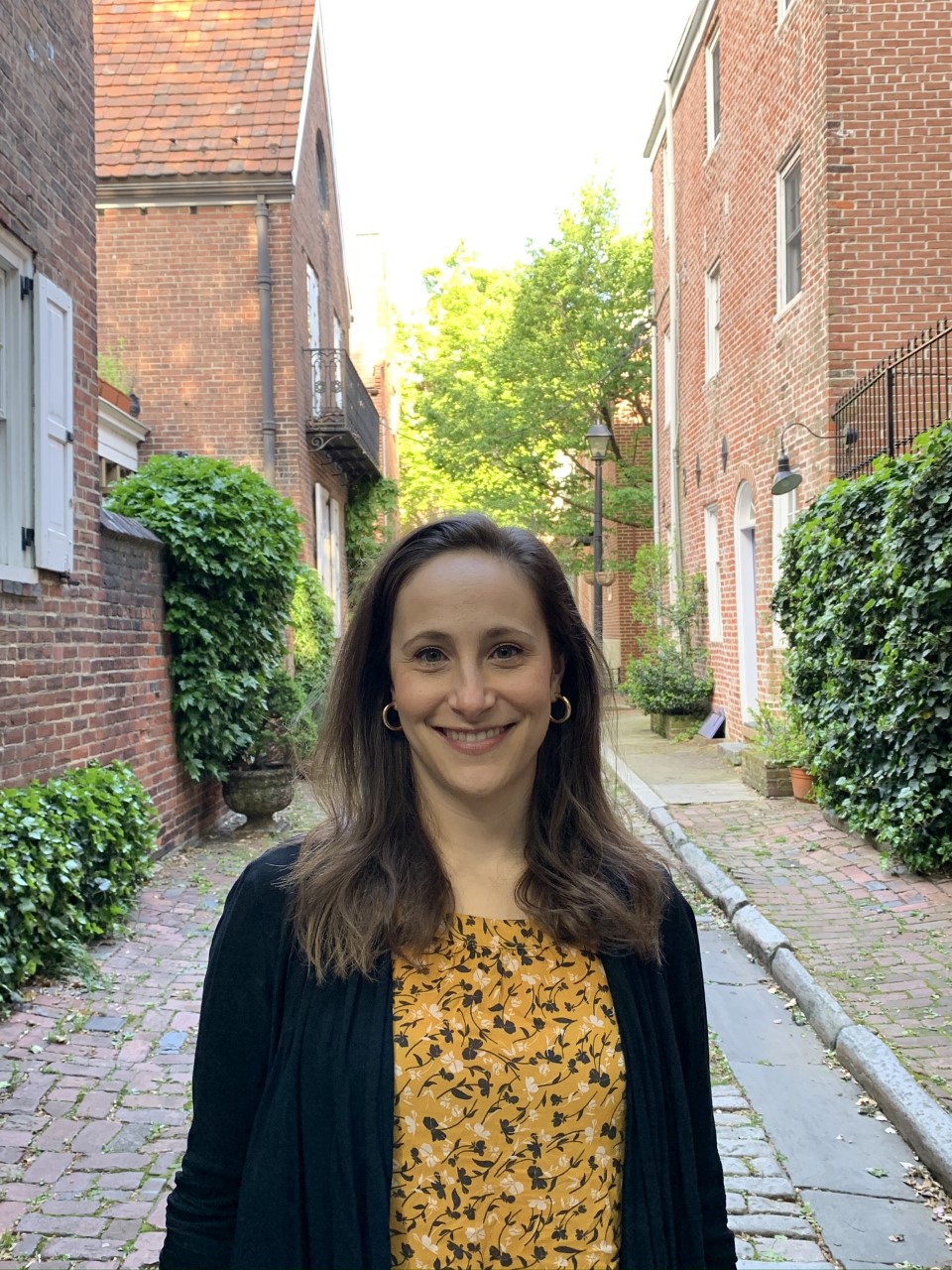Professional / Interprofessional Issues
Symposium 06 - Increasing Diversity and Belonging in Mental Health: Data from Mentorship Programs for Individuals from Underrepresented Backgrounds
Level of Familiarity: All
Recommended Readings: Remaker, D. N., Gonzalez, M. M., Houston-Armstrong, T., & Sprague-Connors, G. (2021). Women of color and mentorship in graduate training. Training and Education in Professional Psychology, 15(1), 70–75. https://doi.org/10.1037/tep0000297, Thomas, F. C., Bowie, J.-A., Hill, L., & Taknint, J. T. (2019). Growth-promoting supervision: Reflections from women of color psychology trainees. Training and Education in Professional Psychology, 13(3), 167–173. https://doi.org/10.1037/tep0000244, Folorunso, O.O., White, K.B., Alonso-Caraballo, Y., Nowicki, G.P., Olson, E.A., Pizzagalli, D.A., Carlezon Jr., W.A., Ressler, K.J., & Chartoff, E.H. (2022). Building an intentional and impactful summer research experience to increase diversity in mental health research. American College of Neuropsychopharmacology, 47, 2189–2193. https://doi.org/10.1038/s41386-022-01461-8, O'Keefe, V. M., Cwik, M. F., Haroz, E. E., & Barlow, A. (2021). Increasing culturally responsive care and mental health equity with indigenous community mental health workers. Psychological services, 18, 84–92. doi:10.1037/ser0000358, Trimble, J. E., & Clearing-Sky, M. (2009). An historical profile of American Indians and Alaska Natives in psychology. Cultural Diversity and Ethnic Minority Psychology, 15, 338-351. doi: 10.1037/a0015112
-

Monica Shah, Psy.D. (she/her/hers)
Psychologist
Behavioral Wellness of NYC; St. John’s University
New York, New York, United States -
.jpg)
Janie Hong, Ph.D. (she/her/hers)
Clinical Associate Professor
Stanford University School of Medicine
Stanford, California, United States -

Michaela Swee, Ph.D. (she/her/hers)
Staff Psychologist and Director of Clinical Training, McLean Hospital Trauma Continuum
Harvard Medical School
Belmont, Massachusetts, United States -
.jpg)
Ashleigh Coser, Ph.D. (she/her/hers)
Health Service Psychologist
Cherokee Nation
Tahlequah, Oklahoma, United States -
MR
Michelle Roley-Roberts, Ph.D. (she/her/hers)
West Virginia University
Morgantown, West Virginia, United States
Chair(s)
Discussant(s)
Presenter(s)
Mentorship is a key part of promoting equity and diversity in CBT practice and research, by bringing individuals from underrepresented groups into the field. Despite the nation’s growing diversity, there is a substantial lack of diversity in the mental health industry, with 80.85% of the psychology workforce in the US comprised of White professionals (APA, 2021). As a result, individuals from minoritized backgrounds seeking a clinician who understands the nuances of their identity and context will experience great difficulty. To have a field that reflects the diversity of the individuals we serve, we must address the barriers that individuals with minoritized identities face when attempting to enter the field. This symposium addresses ABCT’s theme of "Opening Our Doors: Inspiring Community Engagement, Advocacy, and Innovation to Advance CBT" by highlighting mentorship as a way to address the barriers to educational and training access in the mental health field. Mentorship supporting individuals from underrepresented backgrounds can help us to increase diversity and belonging in the field of mental health, for both mental health professionals and those we serve.
Despite the availability of mentorship programs for mental health professionals, there is currently a dearth of programs serving those who hold minoritized identities. Many efforts to provide such programs were begun in 2020, though few collected data on outcomes. While these DEI efforts are noble, collecting outcome data is paramount to ensuring that mentorship programs are effectively supporting those whom they intend to support. This symposium presents data on four mentorship programs that are geared towards serving historically underrepresented groups in the mental health field. Speaker 1 will present program evaluation data from a mentorship program designed to increase diversity, equity, and inclusion in clinical and research mental health sectors by engaging undergraduate students from underrepresented backgrounds. Speaker 2 will present data and feedback from a program aimed at addressing the need for culturally matched mental health services in American Indian/Alaskan Native (AI/AN) communities by targeting recruitment of AI/AN students from tribal communities into the field of psychology. Speaker 3 will present outcome data and lessons learned from a psychology undergraduate mentorship program and a research lab aimed to mentor students from typically underrepresented backgrounds. Finally, our discussant will synthesize these talks by discussing challenges and guidance in developing mentorship programs for future clinicians and researchers from underrepresented groups.
Learning Objectives:
- Explain barriers to educational and training access in the field of mental health.
- Describe how mentorship programs can be used to bring interested individuals from underrepresented groups into the mental health field.
- State a model for mentorship programs serving underrepresented undergraduates interested in pursuing mental health research or clinical roles.
- Describe the mental health services gap in American Indian/Alaskan Native communities and how mentorship is helping to address it.
- Recall key principles in developing a lab to reduce barriers and improve access to quality research experiences for underrepresented students.
- Summarize outcomes of a mentorship program’s impact on mentees’ sense of belonging and confidence in performing steps toward career advancement.
Presentations:
-
8:30 AM - 9:30 AM EST(SYM 6) Promoting Diversity, Equity, and Inclusion in the Mental Health Field: Mclean Hospital's Mentor, Empower, & Network to Optimize Representation (MENTOR) Program
Speaker: Michaela B. Swee, Ph.D. (she/her/hers) – Harvard Medical School
Co-author: Zelda C. McGhee, B.S. – Brigham and Women’s Hospital / Harvard Medical School
Co-author: Kerry Ressler, M.D., Ph.D. – Brigham and Women’s Hospital / Harvard Medical School
Co-author: Catharyn Gildesgame, M.A., Other – Brigham and Women’s Hospital / Harvard Medical School
Co-author: Courtney Beard, Ph.D. – McLean Hospital
-
8:30 AM - 9:30 AM EST(SYM 6) Increasing Representation by Focusing on Recruitment and Retention: Spotlight on the American Indians into Psychology Program
Speaker: Ashleigh Coser, Ph.D. (she/her/hers) – Cherokee Nation
-
8:30 AM - 9:30 AM EST(SYM 6) Outcomes from a Psychology Undergraduate Mentorship Program (PUMP-UP) and a Research Lab (POSTSCRIPT) Aimed to Mentor Students from Typically Underrepresented Backgrounds
Speaker: Michelle E. Roley-Roberts, Ph.D. (she/her/hers) – West Virginia University

.png)
